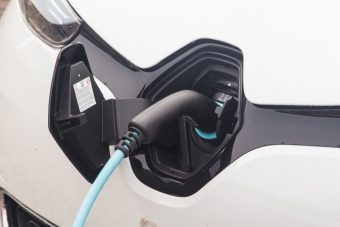
The 7,800km Trans-Canada highway connecting the East and West coasts of the continent-spanning nation will soon boast a network of fast-charging electric vehicle stations thanks to a US$13.6m project announced this week.
Natural Resources Canada and the Canadian Energy Innovation Program are together providing $6.2m for the public-private initiative, which will see 34 charging stations installed along the highway.
Jim Carr, Canada’s Minister of Natural Resources, said electric vehicles would play a key role in reducing emissions from the country’s transportation sector.
“With more electric vehicles becoming available, we want to make them an easy choice for Canadians,” said Carr. “This strategic investment brings us closer to having a national coast-to-coast network of electric vehicle charging stations while growing our economy and creating good jobs for Canada’s middle-class.”
The remaining funding for the project is being provided by the three energy storage specialists responsible for building and operating the proposed network: Swiss firm Leclanché, Toronto-based eCAMION, and Geneva’s SGEM.
Leclanché and eCAMION have formed a new Toronto-based joint venture – FAST Charge Inc. – to manage the Trans-Canada highway project and to also look at other opportunities to expand the EV charging network across North America.
The charging system being developed by FAST Charge for the Trans-Canada highway consists of an energy storage system using large-format lithium-ion batteries alongside multiple-outlet charging units that can charge several EVs at once.
According to the Bryan Urban, EVP of Leclanché North America and president of FAST Charge, the system enables EVs to be rapidly charged in just 20 minutes from the battery instead of directly, but more slowly, from the grid.
“Our system will recharge the battery storage units during off-peak times at considerable cost-savings and reduction in stress to the grid,” said Urban, “Vehicles will be able to power up during peak hours using off-peak energy and continue on their journey in a relatively similar amount of time it would take to fuel a fossil-fuel vehicle, grab a snack and visit a bathroom.”
Work has already started on demonstration units for the system, with full manufacturing scheduled to begin during the first quarter of next year.
The EV charging stations are then expected to be fully installed on the highway by early 2019, covering a distance of around 3,000km with each located around 100km apart.
Elad Barak, VP business development at eCAMION described the planned network as “perhaps the largest infrastructure project for electric vehicles to be deployed at one time anywhere in the world”.
It is estimated that the first five years of the network’s operation could reduce CO2 emissions by up to 700,000 tonnes.
Each charging station is also set to be built with the capability to connect directly to a renewable energy source, such as solar PV panels, the developers said.
Source: businessgreen.com
